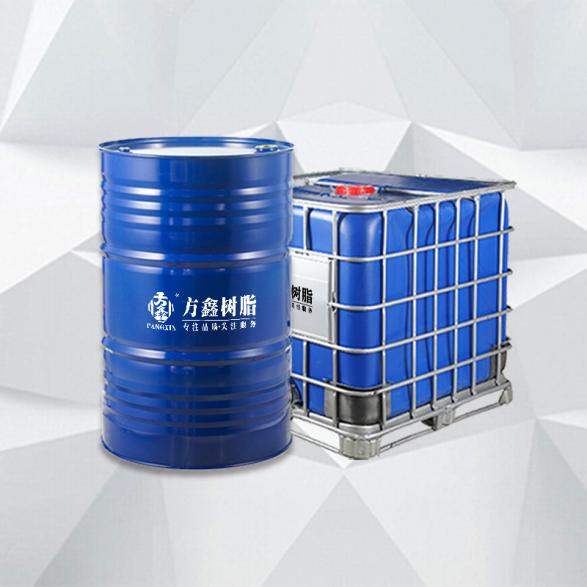Innovative Applications of Vinyl Ester Resins in Chemical, Marine, and Infrastructure Sectors

Vinyl ester resins (VERs) have emerged as a game-changing material in high-performance composite applications, thanks to their unique blend of chemical resistance, mechanical strength, and versatility. Derived from the reaction of epoxy resins with acrylic or methacrylic acids, these resins bridge the gap between traditional polyesters and epoxies, offering superior durability in harsh environments. As industries demand materials that can withstand extreme conditions while reducing maintenance costs, VERs have found innovative applications across the chemical processing, marine, and infrastructure sectors. This article explores their transformative roles in these fields.
Revolutionizing Chemical Processing: Corrosion Resistance Redefined
The chemical industry operates in some of the most aggressive environments, where exposure to acids, alkalis, solvents, and high temperatures can degrade conventional materials like metals or standard polyesters. Vinyl ester resins have become a cornerstone of corrosion-resistant solutions here, enabling the design of longer-lasting, low-maintenance equipment.
One key innovation is their use in fiberglass-reinforced plastic (FRP) tanks and pipelines. Unlike metal tanks, which are prone to rust and require frequent coating or replacement, VER-based FRP systems resist pitting, cracking, and chemical permeation. For example, in chemical plants handling sulfuric acid or chlorine, VER-lined tanks have extended service lives by 30–50% compared to stainless steel alternatives, while reducing downtime for repairs.
VERs also play a critical role in scrubber systems for air and water purification. These systems, used to neutralize toxic emissions or treat industrial wastewater, rely on materials that can withstand caustic cleaning agents. Vinyl ester resins’ resistance to both acidic and alkaline solutions makes them ideal for constructing scrubber chambers and mist eliminators, ensuring efficient operation without material degradation.
Recent advancements have even seen VERs integrated into modular chemical processing units. Their lightweight nature allows for prefabricated components that can be quickly assembled on-site, reducing installation time and minimizing exposure of workers to hazardous environments during construction.
Navigating the Marine Industry: Durability Against Saltwater and Stress
The marine sector faces unique challenges: constant exposure to saltwater, UV radiation, and dynamic mechanical stress from waves and currents. Traditional materials like wood or steel struggle with rot, corrosion, and fatigue, but vinyl ester resins are redefining marine engineering.
In shipbuilding, VER composites are replacing steel in hulls, decks, and bulkheads. Their high tensile strength and flexibility make them resistant to impact from debris or rough seas, while their impermeability to saltwater eliminates the need for anti-corrosion coatings. For instance, patrol boats and offshore support vessels constructed with VER-reinforced composites weigh 20–30% less than steel vessels, improving fuel efficiency without sacrificing structural integrity.
Offshore structures, such as oil rigs and wind turbine foundations, also benefit from VERs. These structures endure extreme pressure, salt spray, and temperature fluctuations. Vinyl ester resins are used to coat steel components or form composite grouts, preventing corrosion and extending the operational life of offshore installations by up to 25 years.
Even in yachting and recreational boating, VERs are making waves. Their ability to be molded into sleek, aerodynamic shapes enhances vessel performance, while their resistance to water absorption ensures that hulls remain lightweight and stable over time. Custom yacht builders now prioritize VER composites for both functionality and aesthetic appeal.
Strengthening Infrastructure: Longevity in Harsh Civil Environments
Civil infrastructure from bridges to wastewater facilities requires materials that can withstand decades of wear, weathering, and chemical exposure. Vinyl ester resins are emerging as a vital solution for retrofitting aging structures and building resilient new ones.
In bridge construction and repair, VERs are used in composite strengthening systems. Carbon fiber reinforced polymers (CFRPs) bonded with vinyl ester resins can be wrapped around concrete beams or columns, increasing their load-bearing capacity by 40–60%. This technique is particularly valuable for rehabilitating bridges in coastal areas, where saltwater-induced corrosion weakens traditional concrete and steel. The resins’ resistance to chloride penetration ensures long-term stability, reducing the need for frequent maintenance.
Wastewater treatment plants rely on VERs for tanks, pipes, and clarifiers. These facilities handle highly corrosive substances, including sewage, industrial effluents, and disinfectants like chlorine. Vinyl ester resin linings or FRP components resist chemical attack, preventing leaks and contamination. In recent projects, VER-based systems have reduced maintenance costs by 50% compared to concrete or steel alternatives, which require regular patching or replacement.
Urban infrastructure, such as seawalls and flood barriers, also benefits from VER innovation. Composite panels made with vinyl ester resins are lightweight, easy to install, and resistant to erosion from tides and storm surges. In coastal cities prone to flooding, these barriers provide a durable, cost-effective alternative to concrete, offering flexibility to absorb wave energy without cracking.
Vinyl ester resins have proven their mettle as a versatile, high-performance material across the chemical, marine, and infrastructure sectors. Their unique combination of corrosion resistance, mechanical strength, and adaptability has enabled innovations that enhance durability, reduce costs, and extend the lifespan of critical assets. As industries continue to prioritize sustainability and resilience, VERs will undoubtedly play an even greater role in shaping the future of engineering and construction. Whether in a chemical plant, offshore rig, or urban bridge, vinyl ester resins are setting new standards for performance and longevity.
Comments
Post a Comment